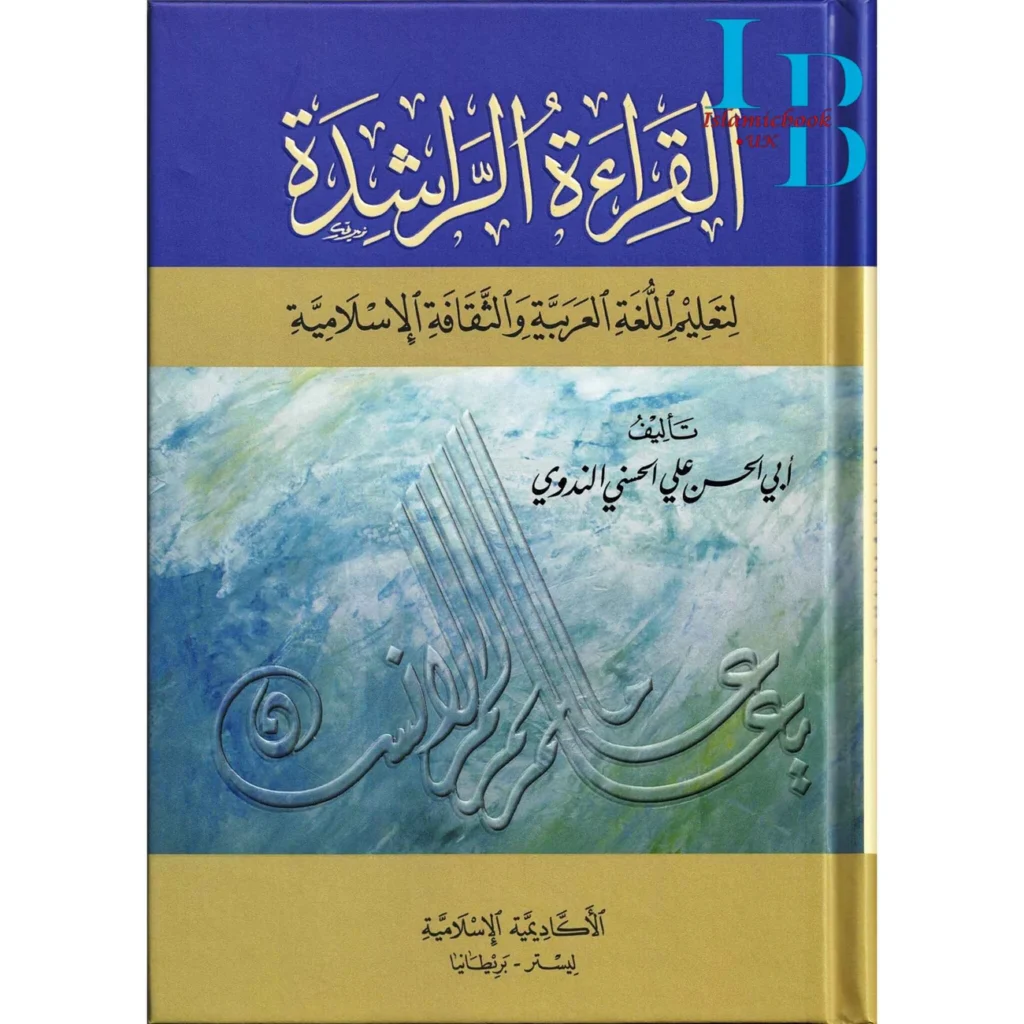
“Qiraat ar Rashida” is a highly impactful Arabic book written by the renowned Islamic scholar, Sayyed Abul Hasan Ali Nadwi. Famous for his eloquence, clarity of expression, and pedagogic vision, Nadwi compiled this book with the aim of educating young minds with tales and morals rooted in Islamic tradition. The book offers a rich literary experience to students of Arabic language, in addition to passing on Islamic values through engaging narratives.
This book occupies a special position among Arabic books, particularly within Islamic education systems worldwide. Its organized chapters, culminating in moral lessons or questions for reflection, render it a textbook as well as an inspirational work. For students who wish to reinforce their Arabic and at the same time enhance their spiritual existence, “Qiraat ar Rashida” is the perfect guide.
Author’s Vision and Educational Impact
Sayyed Abul Hasan Ali Nadwi was a scholar, a reformer, and an educator par excellence who comprehensively understood the intellectual and spiritual challenges of Muslim youth. Through “Qiraat ar Rashida,” he sought to provide young readers with a worldview based on Islamic principles, strength, and history. His writing style is candid yet immensely touching, enabling learners to relate to both the language and the material.
The narratives in the book inspire readers to think critically and with an Islamic sense of responsibility. Every story promotes consciousness regarding values like honesty, sacrifice, bravery, and respect for others. With this thoughtfully compiled material, the author aimed to create morally responsible individuals who could face contemporary challenges without sacrificing their faith.
Language Development Through Storytelling
One of the strengths of “Qiraat ar Rashida” is that it serves two purposes: it is a language reader as well as a moral guide. The students who read this book naturally learn Arabic words, grammar, and sentence structure in an interactive way. The stories are presented in a literary and conversational style, making them easier to understand for intermediate learners.
Aside from language proficiency, readers appreciate classical Arabic expression. The usage of idioms, rhetorical questioning, and symmetric writing by Nadwi portrays the beauty of Arabic literature. Teachers recommend the book for its ability to improve a learner’s Arabic abilities while instilling love in Islamic culture and values.
Thematic Depth and Ethical Lessons
Every chapter of “Qiraat ar Rashida” is constructed around a certain theme either honesty, courage, piety, or kindness. These themes are introduced in brief, compelling stories that are simple to comprehend but rich in thought. The moral drawn at the conclusion of every story reminds the student of the lesson, making it easier for them to absorb what they have read.
For instance, narratives about the Companions of the Prophet (peace be upon him), historical Islamic champions, or routine acts of uprightness make Islamic values more real and relatable. As opposed to sermonizing, the book directs by example, which is more effective in shaping young minds. It also brings modern challenges to bear quietly through ageless principles.
Classroom and Home Use
“Qiraat ar Rashida” is now a standard among most Islamic schools, particularly in Arabic nations and madrasahs globally. Educators prefer it because it consolidates religious enrichment with language education, eliminating the necessity for additional books. Its organized format also simplifies lesson planning, while the debate it stimulates maximizes classroom interaction.
Outside of schools, parents commonly employ this book to establish a healthy Arabic learning atmosphere at home. It is a daily reader, a conversation beginner, and an instrument for teaching Islamic manners. Its brief chapters are easy for reading before bed or on weekend study breaks. The tone of the book is warm, nurturing, and never daunting.
Revival of Classical Islamic Pedagogy
Sayyed Abul Hasan Ali Nadwi’s work in this book mirrors the classical Islamic pedagogy that emphasizes tarbiyah (moral upbringing) alongside ta’lim (knowledge acquisition). In contrast to modern textbooks that focus purely on academic content, “Qiraat ar Rashida” revives the balance between intellect and character development.
By combining Qur’anic values, Hadith principles, and ethical storytelling in an Arabic reader, Nadwi presented a model that fuses deen with dunyah. He didn’t merely wish his readers to be fluent speakers; he wished them to be conscious, compassionate, and principled individuals. This goal makes the book unique in Islamic educational literature.
Timeless Relevance for Today’s Youth
Though “Qiraat ar Rashida” was penned decades earlier, its material is remarkably applicable. In an era of distractions and divided attention, the book grounds the youth in virtues that foster responsibility, humility, and compassion. Its narratives emphasize the power of faith during periods of uncertainty, presenting emotional support in addition to linguistic progress.
The protagonists of the book are easy to relate to, and their predicaments are the same as today’s peer pressure, injustice, or moral dilemma. The answers proffered are based on belief and self-discipline, not fantasy. This makes “Qiraat ar Rashida” a better textbook than one; it’s a holy guidebook for contemporary Muslim students.
Conclusion: A Legacy of Light and Learning
“Qiraat ar Rashida” is more than a storybook or a language reader it is a beacon for Islamic character and linguistic excellence. Sayyed Abul Hasan Ali Nadwi’s genius lies in how he combined soulful stories with pedagogical clarity, creating a book that continues to inspire generations. Whether read in classrooms or homes, it nurtures both the intellect and the heart.
For learners of Arabic, it’s a strong foundation in classical style and language. For Muslims looking for moral guidance, it offers values in the form of real-world experiences. And for teachers, it’s a textbook that makes teaching easier without sacrificing depth. “Qiraat ar Rashida” indeed lives up to its name a guided reading that informs righteous lives.
Read more: Scoop Article
